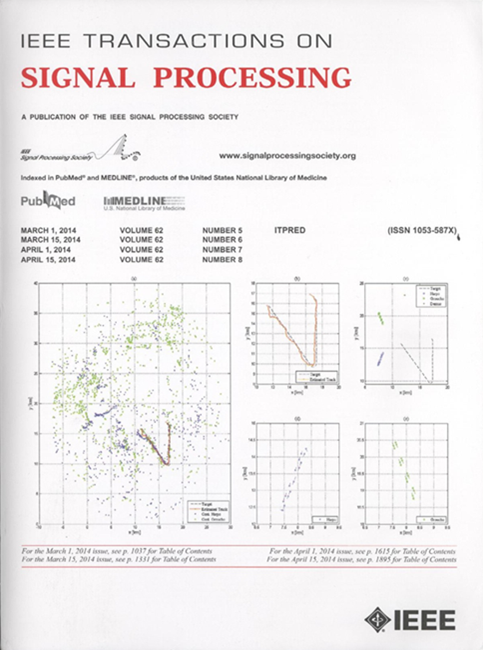无蜂窝无线通信系统中深度展开的大规模无授权传输
IF 4.6
2区 工程技术
Q1 ENGINEERING, ELECTRICAL & ELECTRONIC
引用次数: 0
摘要
无授权传输和无小区通信对于提高大规模机器类型通信的覆盖和服务质量至关重要。提出了一种新的联合主动用户检测、信道估计和数据检测(JACD)框架,用于无蜂窝无线通信系统中的大规模无授权传输。我们将JACD表述为一个优化问题,并使用正向向后分裂近似求解。为了处理离散符号约束,我们将离散星座松弛为其凸包,并提出了两种从星座集提升解的方法。为了降低复杂度,我们用近似收缩操作和近似后验均值估计计算来代替昂贵的计算。为了提高主动用户检测(AUD)性能,我们引入了一个软输出AUD模块,该模块同时考虑了数据估计和信道条件。为了共同优化所有算法超参数,提高JACD性能,我们进一步将深度展开与动量策略结合使用,得到了DU-ABC和DU-POEM两种算法。最后,我们通过广泛的系统仿真证明了所提出的JACD算法的有效性。本文章由计算机程序翻译,如有差异,请以英文原文为准。
Deep-Unfolded Massive Grant-Free Transmission in Cell-Free Wireless Communication Systems
Grant-free transmission and cell-free communication are vital in improving coverage and quality-of-service for massive machine-type communication. This paper proposes a novel framework of joint active user detection, channel estimation, and data detection (JACD) for massive grant-free transmission in cell-free wireless communication systems. We formulate JACD as an optimization problem and solve it approximately using forward-backward splitting. To deal with the discrete symbol constraint, we relax the discrete constellation to its convex hull and propose two approaches that promote solutions from the constellation set. To reduce complexity, we replace costly computations with approximate shrinkage operations and approximate posterior mean estimator computations. To improve active user detection (AUD) performance, we introduce a soft-output AUD module that considers both the data estimates and channel conditions. To jointly optimize all algorithm hyper-parameters and to improve JACD performance, we further deploy deep unfolding together with a momentum strategy, resulting in two algorithms called DU-ABC and DU-POEM. Finally, we demonstrate the efficacy of the proposed JACD algorithms via extensive system simulations.
求助全文
通过发布文献求助,成功后即可免费获取论文全文。
去求助
来源期刊

IEEE Transactions on Signal Processing
工程技术-工程:电子与电气
CiteScore
11.20
自引率
9.30%
发文量
310
审稿时长
3.0 months
期刊介绍:
The IEEE Transactions on Signal Processing covers novel theory, algorithms, performance analyses and applications of techniques for the processing, understanding, learning, retrieval, mining, and extraction of information from signals. The term “signal” includes, among others, audio, video, speech, image, communication, geophysical, sonar, radar, medical and musical signals. Examples of topics of interest include, but are not limited to, information processing and the theory and application of filtering, coding, transmitting, estimating, detecting, analyzing, recognizing, synthesizing, recording, and reproducing signals.
 求助内容:
求助内容: 应助结果提醒方式:
应助结果提醒方式:


